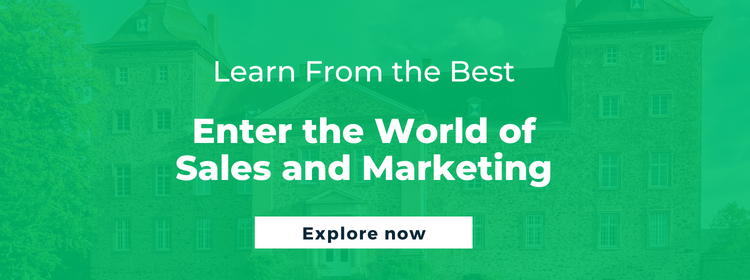What is Marketing Automation and How it Helps Businesses Grow

Effective marketing is often synonymous with the consistent repetition of diverse engagement strategies. But tedious and monotonous tasks can eat up not just resources, but also precious production time. This is why about 56% of companies worldwide currently use marketing automation. It has unfolded a systematic mix of human and Artificial Intelligence (AI) to reach the right message to the correct audience at the precise time. So, what is marketing automation and why are so many companies adopting it within their marketing paradigms?
What is Marketing Automation?
It refers to the practice of utilizing technology that automates and enhances repetitive marketing tasks. Companies orchestrate the consumer journey by integrating comprehensive marketing automation strategies with Customer Relationship Management (CRM) paradigms. This has two benefits: aligning the sales and marketing teams toward a common goal and nurturing new leads while strengthening the existing customer base.
How Does Marketing Automation Work?
The following features are critical for understanding what is marketing automation and how it works:
- Marketing automation optimizes workflows, enriches campaigns by personalizing them, and anchors the sales and marketing teams in one organic vision.
- Automation software systems automate emails, social media posts, ad campaigns, chatbots, and CRM strategies, with the end goal of maximizing customer conversion rates.
- It enhances personalization by tracking consumer activity through website interactions, email click rates, and app usage to track their behavior and buying patterns.
Marketing Automation Examples
- Welcome emails: This is the most common approach to personalization and momentum building for new and old customers alike.
- Customer quizzes on social media: User polls multiply engagement as they are crisp and demand less bandwidth from a potential customer.
- Intelligent social media automation: This long-term automation strategy yields engagement with a consistent social media presence and a stable content base to build a large following.
- Focus on incomplete buys: According to a Generix report, 55% to 75% of shopping carts are abandoned in the pricing stage. Rethinking email marketing or notification campaigns with direct links to shopping carts will help you secure buys and avoid user distraction.
ALSO READ: Is Inbound Marketing the Strategy You Need to Boost Sales?
What is Marketing Automation Used for?
Thorough integration with other aspects of your business enables automation to achieve the following objectives:
- Tailored content: By capturing the right data and meticulously analyzing customer preferences, marketing automation pushes you toward an informed and satisfied customer base.
- Enhanced team creativity: Allows the marketing department to focus more on ingenious marketing strategies and boost your business prospects.
- Converting customer base to brand loyalists: Once users achieve a sense of comfort due to consistent active responses to individual customer needs, they prefer sticking with your brand.
What Tools are Used for Marketing Automation?
Here’s a list of some popular automation tools:
- Marketo: An end-to-end advanced automation tool
- Hubspot: All-in-one inbound marketing software
- Eloqua: An automation tool supporting third-party integration
- Customer.io: A lightweight automation tool offering superior customizations
- Constant Contact: An end-to-end automation tool for small businesses
Best Practices for Marketing Automation
Marketing automation isn’t just about blindly automating all your marketing strategies. Here are some best practices:
- Personalized welcome emails: Categorize email strategies according to consumer status before sending them out. A customer resuming a subscription after two months should receive a different confirmation email than someone who just became a new customer.
- Personalized consumer data usage: Occasions of offers and discounts should cater to customers of varied tastes. Keep track of birthdays, anniversaries, and personal religious rituals — Yom Kippur, Thanksgiving, Christmas — of the customer base to maximize intuitive customer responses to your push notifications.
- Brand loyalists: RSS-push notifications, if channelized correctly, can target brand loyalists who have the highest chance of engaging with the company and increase sales via word of mouth.
 How Does Marketing Automation Impact the Customer Journey?
How Does Marketing Automation Impact the Customer Journey?
Let’s see what the role is of automation in improving customer satisfaction to ensure minimal friction in the different stages of the customer journey.
- Gaps in research: With detailed consumer data, filling research gaps on specific customer bases accelerates the onboarding process of new market segments.
- Removing unnecessary friction: Automation of marketing channels also means centralizing your resources. Implementing a sequential marketing order greatly reduces fluctuations in consumer decisions as the effects are measured and optimized.
- Saves consumer time: User personalization pushes the satisfaction quotient right from the word go. Moreover, two-way communication between the company and the buyer in terms of instant comments and reviews doubles engagement efficiency.
ALSO READ: How to Become a Marketing Manager Who Can Foster Growth
What Can Marketing Automation do for Your Business?
Let’s focus on what is marketing automation’s direct significance to a company.
- Customer centricity: Automation strategies ensure that the customer is at the center of all your business development efforts. Apart from reducing customer effort along the marketing funnel, it streamlines the work processes that function well after the purchasing decision has been made.
- Cross-functional workflows: Marketing automation streamlines cross-functional teams who share insights with each other and drive superior content practices, removing complicated hand-off procedures such as data collation or updating individual team progress.
Career Outlook for Marketing Automation Professionals
According to the U.S. Bureau of Labor Statistics, marketing professionals will witness a 10% surge in demand between 2021 and 2031. As consumer-company relationships become more digitalized, there will be a proliferation in the variety of jobs on offer. A marketing automation professional can bag the following portfolios:
- Product Manager
- Event/campaign manager
- Market analyst
- Business analyst
- Social media manager
- Media planner
- Public relations (PR) representative
Knowing what is marketing automation provides you with the best answers for organizational needs pertaining to seamless digital experiences for the modern-day consumer. You can make the most of the opportunities presented by marketing automation by pursuing Emeritus’ online sales and marketing courses developed in collaboration with some of the best universities in the world.
By Bishwadeep Mitra
Write to us at content@emeritus.org






